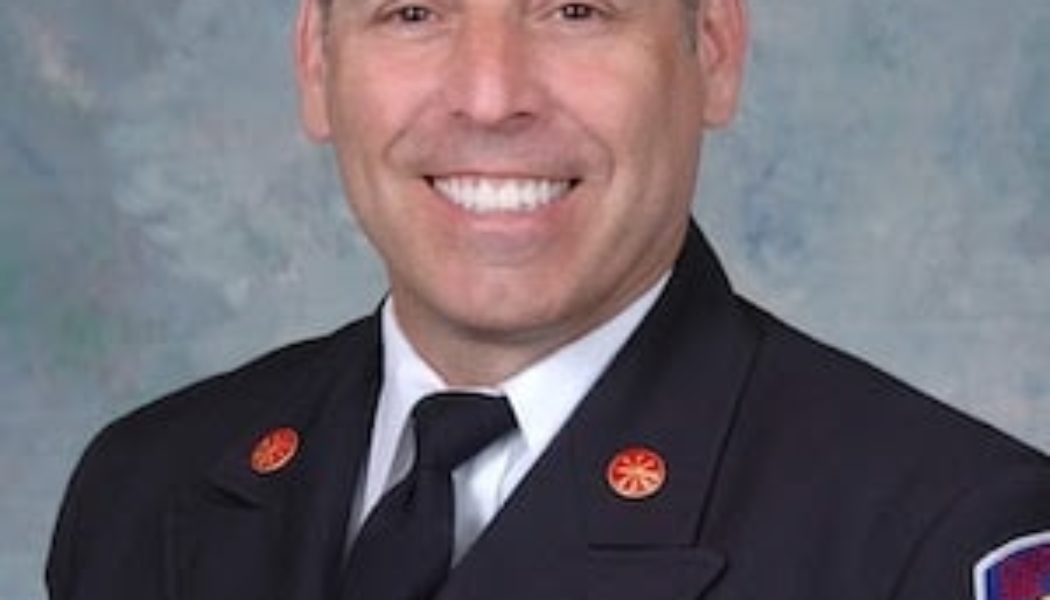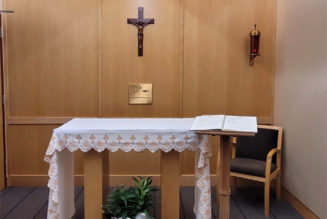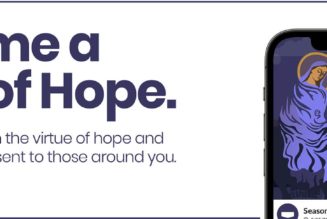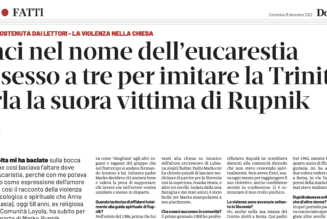The firefighters in Carmel, Indiana, say that their baby box — a device that allows mothers in crisis to anonymously surrender their newborns — fits with their calling to be life savers.
“I believe that it pairs up perfectly with why the fire service exists, and that’s to take care of human life,” David Haboush, the fire chief of the Carmel Fire Department, said of the box at Station 345. “That’s what this whole entire program is about: It’s about saving lives.”
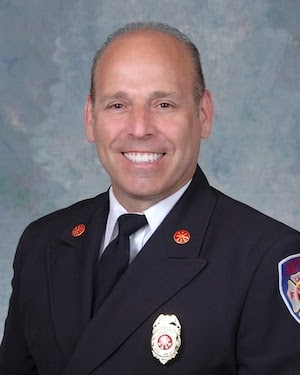
Both Haboush and John Moriarty, the department’s chief of community relations, shared their excitement and passion for running one of the 173 active baby boxes nationwide associated with Safe Haven Baby Boxes. The program, which began in Indiana in 2015, has helped 37 babies through these boxes, according to founder Monica Kelsey.
Four of those babies were surrendered at Station 345, making it the busiest box in the nation.
Helping mothers and babies
Haboush and Moriarty, who have spent decades in the fire service, spoke with Our Sunday Visitor about the success of their baby box after it was featured in the IndyStar. The program, they stressed, isn’t about them or the fire department. It’s about helping mothers and babies.
Baby boxes, temperature-controlled safety devices, feature multiple alarms to alert first responders when used and immediately lock after a baby is placed inside. An informational packet falls out with resources for the parent. The box, installed in the exterior wall of a fire station or hospital, is then opened from the inside of the building.
At Station 345, all four babies were located in less than a minute.
“It is literally another doorway into the fire station,” Haboush described. “It is a legal and safe way for someone who is in crisis to be able to do what is in that infant’s best interest at that very moment in time.”
Every state, including Indiana, enforces some variation of a safe haven law — a law that generally allows a parent to give up custody of a newborn anonymously and legally at designated locations. In addition to providing boxes, Safe Haven Baby Boxes works to prevent illegal abandonment of newborns by raising awareness about these laws and offering a 24-hour hotline at 1-866-99BABY1.
The founder, Kelsey, drew inspiration from her personal story to start Safe Haven Baby Boxes: Conceived in rape and nearly aborted, she was abandoned at a hospital as a newborn.
“When Christ gives you a calling and the tools to do it, you can accomplish anything,” Kelsey, a Christian, told Our Sunday Visitor. “All I did was take my pain and my story and put them together to make things better for others! And of course, Christ was and continues to be the driver.”
A memorial
The box at Station 345 opened and received a blessing on Dec. 28, 2018. The firefighters chose the date in memory of an abandoned baby found dead in Indianapolis a few years earlier, on that same day.
Local news, at the time, reported that a hiker came across the baby girl wrapped in a sweatshirt reading “Aviation Maintenance Vincennes University-Indianapolis.” According to Safe Haven Baby Boxes, she was the last infant who died due to abandonment in Indiana.
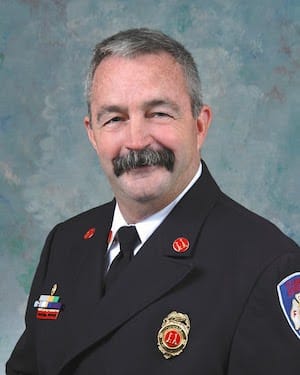

Because of the sweatshirt, Kelsey and Linda Znachko of He Knows Your Name, a ministry that helps provide names and proper burials for deceased babies, named her “Amelia” after the historic aviator Amelia Earhart, Moriarty said. On her gravestone, her full name reads: “Amelia Hope Grace.”
Amelia’s story tugged at their hearts, Moriarty said, and so they memorialized their baby box after her.
For the first three years, it remained empty, except for a litter of kittens. Then, four babies were left: two in April 2022, one in May 2022, and one in August.
Moriarty, a Catholic, attributes the success of the box to baby Amelia.
“I believe this, that Amelia is looking down from heaven and she is watching over that baby box and that’s why — in my own heart — that’s why I believe we’ve had four babies,” he said. “Because Amelia’s seeing to it that it’s serving its purpose.”
A message for the moms
For the mothers who surrender their babies, Haboush shared a special message.
“Short and sweet: Thank you,” he said. “That’s what I would say to the mothers.”
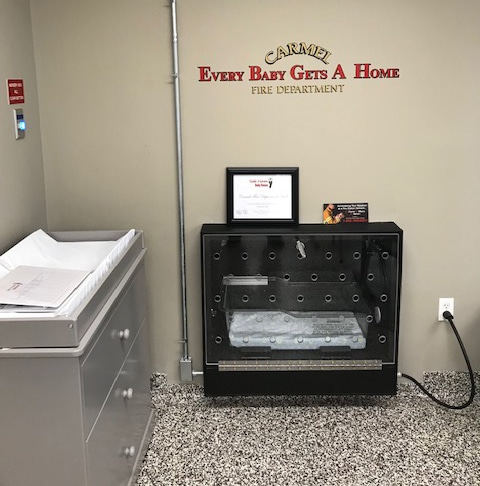

In particular, he wanted to thank the mothers for their courage and love in giving up their baby because they determined that is what is best for him or her. He also thanked them for entrusting firefighters in Carmel and across the U.S. to care for their children.
“I would want the parents to know that the child’s going to be placed with a family who is going to love them, nurture them, and care for them,” he added. “And that part of this process is about finding a forever family for these kids.”
Safety as a priority
Station 345 takes extra safety precautions with its box. In addition to silent alarms that go off when the box is being used, Moriarty said he receives notifications on both his personal and work phone. Haboush and Kelsey are also notified.
Four strobes throughout the station with blue lights alert firefighters when the baby box is in use. Moriarty and his wife bought a changing table where firefighters can place the baby. Once they do, there’s a button on the wall that they can press to signal that the baby is safe.
“On the changing table that my wife and I put in there, the top drawer has all the medical stuff they need right away to tend to the baby, so they have an OB kit, oxygen, gloves, everything they need,” Moriarty added.
The system is tested once a week, he stressed, and even if the power goes out, they have a back-up generator. The boxes are, he said, “extremely safe.”
Next steps
After a baby is surrendered, the firefighters hold a press conference to — first and foremost — reach the mom and let her know that her baby is okay, Moriarty said. They also place a number on the screen so that the mother or any mother in need can reach out if she needs help.
After a baby is surrendered, he or she is immediately taken to the hospital for care. Moriarty, Haboush and Kelsey also arrive and stay with the baby to make sure he or she is never alone.
“The baby will always go to the NICU [Neonatal Intensive Care Unit] because they have no history on the baby,” Moriarty said. “My wife and I and the chief and Monica will take turns and we’ll go in and see the baby throughout the period of time there in the NICU.”
He added: “We’ll stay with them so they can be loved on and held and someone’s with them all the time until we find the adoptive family.”
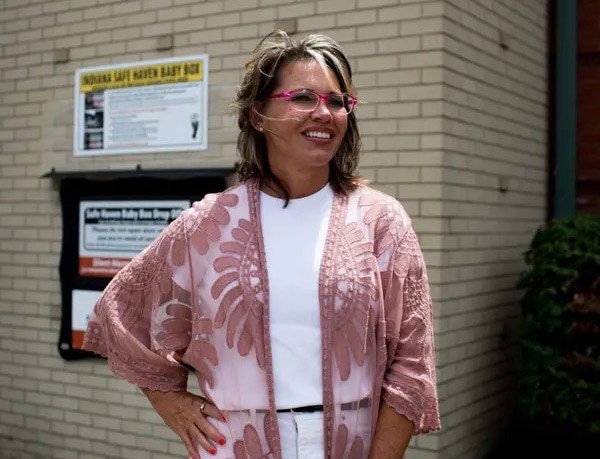

One baby returned to his or her blood mother, which is also a possibility, Moriarty emphasized.
Haboush highlighted Bill 345, signed into law this summer, which allows the fire department to be part of the decision-making process for the baby. Under the new system, the fire department can directly contact a licensed child-placing agency and speed up the adoption process.
For their fourth baby, that meant that they could call an adoption agency and, in less than 16 hours, the baby’s forever family was in the same room as the baby.
For every baby, the firefighters celebrate his or her birthday with a birthday cake. Either his daughter will buy a birthday cake, Moriarty said, or, as with the first baby, the firefighters will bake the cake themselves, sprinkles included. They take a photo and save it to hand to the baby’s adoptive family.
That’s because the babies — and their families — sometimes come back to visit the firefighters.
Raising awareness through TikTok
In addition to press conferences, Kelsey regularly posts informational videos about baby boxes on her TikTok account. Moriarty, who appears in some of the videos, shared his response to raising awareness on social media after Kelsey posted a viral video of him explaining the baby box.
Moriarty, who is not on social media himself, first found out about the video — and what TikTok was — from his daughter, he said. In less than a week, the video had more than one million views.
“I said, ‘Well, as long as it’s clean and there’s nothing wrong and there’s nothing bad coming from it, as long as it’s promoting the program for the babies and the moms, that’s all I care [about], because that’s what’s important,’” he remembered. “It’s not about me.”
A success story
Kelsey responded to the success of the Station 345 baby box by applauding the firefighters.
“Carmel Fire has some of the best firefighters I have ever met and just talking with them will tell you why these women who are using these boxes trust them with their most precious gifts,” she said.
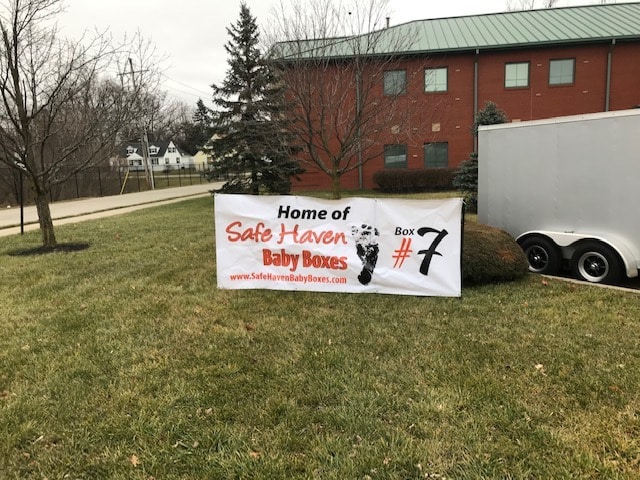

For Haboush and Moriarty, the program is, again, about saving lives.
“The two most vulnerable segments of our population are the very old and the very young,” Haboush said. “But the difference between the very old and the very young: These infants, they don’t have a voice. All they can do is cry.”
“At the end of the day,” he concluded, “it’s us being able to advocate for these children.”
